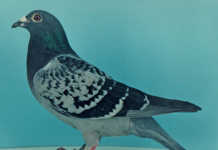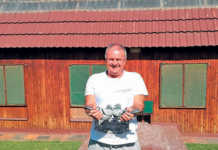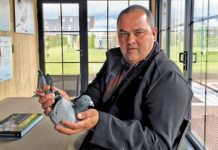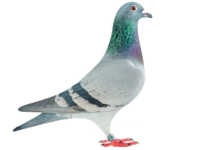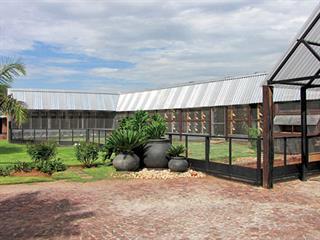
While we all know that not all pigeon races are won by financially privileged entrants, the fact is that many of them are! Enough, certainly, to give rise to the debate. Yes, pigeon racing is by its nature expensive. But money can’t buy everything – very little can be achieved without commitment and sacrifice.
If you have a true passion for pigeon racing, this will put you ahead of competitors who do not share your dedication. Having said this, the proverbial playing field can never be truly levelled. Wealthier fanciers will always be able to buy the better quality pigeons – and build lofts the avian equivalent of five-star hotels.
But much more can be achieved for less money than you would think. And you don’t have to be a CEO to be competitive.
For one thing, there is no scientific evidence that the more expensive kinds of pigeon feed, medication and supplements that have flooded the local market in recent years are better than the more affordable brands. Wealthier fanciers don’t necessarily have better options, only more expensive ones.
Practical loft requirements
Let’s consider lofts, for example. To become successful in pigeon racing, you do not need to construct a pigeon loft that visitors mistake for a second house. A friend in Pretoria erected his pigeon loft above his garage, complete with a balcony and fancy windows and rest room with a bar and TV. Now his pigeons can listen to the soothing sounds of Strauss with the rest of the family on Sundays.
In Europe, many ‘pigeon families’ stay downstairs, with the lofts on the second floor. Except for basic maintenance, a pigeon loft is a once-off investment. I’d even suggest building one that can be dismantled should you decide to move.
A good loft must simply:
- Provide enough space for the number of pigeons kept.
- Provide protection from the elements, birds of prey and other predators.
- Allow for stable day and night temperatures.
- Allow for ease of access for both owner and pigeons.
- Include perches, nest boxes, water troughs, food trays and an electronic clock.
- Have a section where prized breeders can be kept apart from the rest.
- Have space for birds to bathe and enjoy the sunshine.
Electronic pigeon timing clocks form a big part of your investment, but again, this is a once-off purchase. All SA National Pigeon Organisation-approved brands, such as Deister, Unikon, Brikon, Tipes and Benzing, are effective and will last long if kept properly maintained. Expect to pay between R5 000 and R10 000, depending on the brand. The electronic rings cost about R20 or more, depending which system you choose.
Effective management
When it comes to stock, buy eight to 10 pairs and breed your own youngsters for racing, or buy youngsters from trustworthy champions and select your future stock from these. Success is based on finding ‘click pairs’ that produce youngsters which perform consistently well. Learn the criteria that will help you to match your pair – an experienced fancier can help you here.
Regardless of how fair the rules of competition may or may not be, many fanciers never show on the scoreboard not because they lack the finances, but because they do not have an effective pigeon management system, never seem to learn and are invariably found gossiping in the club bar.
What to expect
Brian Marshall from Gauteng is a specialist pigeon fancier who has erected lofts for various champion fanciers. He says that depending on the finishing touches, one can get away with about R50 000 for a good loft that houses 100 racers.
Marius Klingbiel is a member of the East Rand Racing Pigeon Federation, which has 120 active members who enter 20 pigeons per member per race. When starting out, he says, all fanciers are on the same level regardless of financial status. You acquire the skills and experience that put you ahead.
He reckons that an effective pigeon loft should cost around R30 000. Still too pricey? Yanni Oliver from Port Elizabeth says that if you use second-hand wood properly treated for fungi and decay, you can erect a loft for R5 000!



